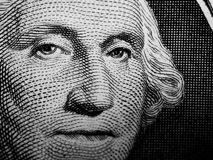5 words that can impact a dentist's personal finances and financial future

Incredible tax deductions, protects assets from creditors, and can overcome investment losses from the past? What is it?
All of the above may seem like an insurmountable challenge and not achievable. Is there a way to attain each point in the descriptive heading to this article? What is it that provides a dentist even some of the above? There are five words that will allow each dentist to understand how to meet the overwhelming concepts in this title. After reading the short description, many dentists may feel that they know all there is to know about its meaning. Chances are they do not really understand the ability to use this innovation for the most good for themselves. They also probably do not have the expertise to use the variations of the five words without an enormous expense incurred for others. In order to attain the utmost benefit for themselves and whomever they want to be part of their plan, a meeting with a dental CPA, experienced with this type of approach, is an important part of the dentist’s financial health.
What are the five words that will accomplish the ideas above? Employer Sponsored Qualified Retirement Plans.
It is really important to understand the input that a dental financial professional can have when utilizing these five words. The formulas that the professionals use, who have expertise in this area to understand, and the creativity they own, will overcome the lack of knowledge that many dentists and dental financial advisors have who think they have expertise in this area. These words can change the lives of dentists and those with whom they want to share. The words are: “Employer Sponsored Qualified Retirement Plans.” For those dentists and advisors who feel they know everything about Employer Sponsored Qualified Retirement Plans, let’s review some sophisticated approaches that may not be known.
My employees are getting too much
The above is one of the most common phrases the dentist uses to opt out of the adoption of a retirement plan. That penalizes the dentist and the dentist’s family of huge savings, lower taxes, and, with proper planning, the ability to discriminate in favor of the dentist’s own contributions to the plan. The dental professional’s financial expert can assist in the design of a qualified employer sponsored retirement plan that will give the dentist just what was thought to be not possible. The right to large deductible contributions to a retirement plan for the dentist’s inner circle and the dentist is something to speak about to an expert in this field.
I can’t afford to make the contributions to the retirement plan
Here is another example of thinking that the deductible contributions are not affordable. The dentist who has personal investments can do the following:
(1) Transfer his or her cash value to the dental practice as a capital contribution or loan.
(2) Make a deductible retirement plan contribution of the same amount.
This allows the dentist the tax deduction, which reduces the dentist’s taxable income. It also takes the earnings of those investments, which were taxable, and defers them until the dentist withdraws them from the retirement plan. For a self-employed dentist with no investment funds, the tax savings of over 50% will pay a large part of the contribution and the balance will come from the dental CPA’s insightful strategy.
I lost money in the market and can’t sell my practice so I must continue working
When a qualified employer sponsored retirement plan is adopted by the dental practice, the past market losses can be subsidized by the government. When a tax deduction is taken for the contribution to the retirement plan, based on the dentist’s tax bracket, sometimes more than 50% of the investment will come from money the dentist never would have had. Today’s taxes push many dentists with reasonably good income into higher tax brackets. Instead of paying the tax, the government is assisting with the ability to afford the contributions by reducing taxable income by the retirement plan contributions. For owners of a dental practice, with double social security, double medicare and high income tax brackets, the retirement plan contribution can reduce taxes by more than 50%. Borrowing funds at today’s rates for the deductible contributions with a 50% tax reduction may cost 6% interest. That is a 44% net savings.
What about the dentist who owes a lot on a real estate investment?
An investor who owes the bank a substantial sum and has investments in the retirement plan should breathe a sigh of relief. The lender can’t take the retirement plan’s funds. They are protected from creditors by law.